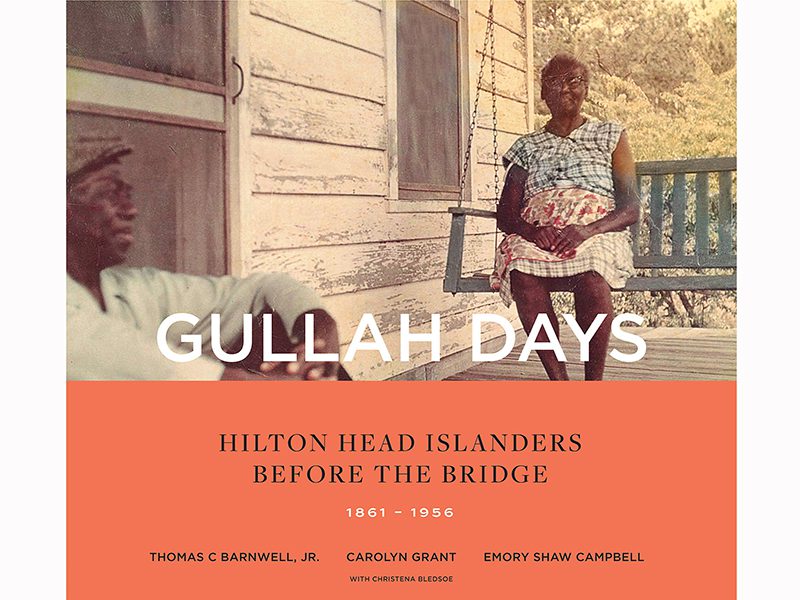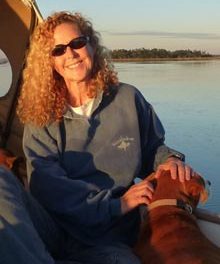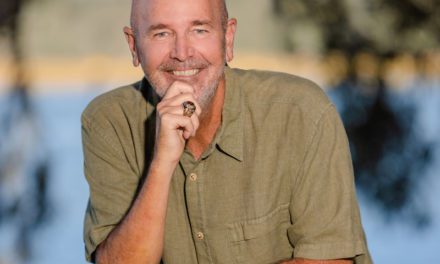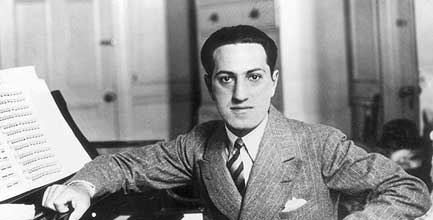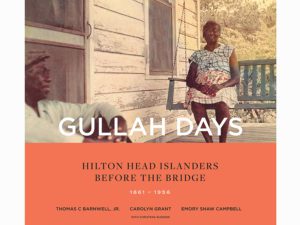 Penn Center, in conjunction with Penn Circle, Inc., is hosting a book signing with the three authors of Gullah Days: Hilton Head Islanders Before the Bridge 1861-1956.
Penn Center, in conjunction with Penn Circle, Inc., is hosting a book signing with the three authors of Gullah Days: Hilton Head Islanders Before the Bridge 1861-1956.
Thomas C. Barnwell, Jr., Carolyn Grant, and Emory Shaw Campbell, authors of this book that celebrates their Gullah heritage and culture, will be at the York W. Bailey Museum on Thursday, July 22. The reception begins at 6:30 p.m., followed at 7 p.m. by a chance to meet the authors and then the book signing at 7:30 p.m.
The event is free to the public.
The Gullah culture, though borne of isolation and slavery, thrived on the U.S. East Coast sea islands from pre-Civil War times until today, and nowhere more prominently than on Hilton Head Island.
On this barrier island, descendants of the first generations of Gullah people continue to preserve Gullah language, customs, arts, and cuisine. and in this book, they chronicle the amazing history of their secluded community from the Civil War through the 1950s, when real estate development connected Hilton Head Island to the mainland with a bridge.
The history of these Gullah islanders, little celebrated until now, is an amazing American story. Hilton Head Island was one of the first areas liberated by Union troops after Fort Sumter. With plantation owners absent, the society of formerly enslaved Gullah people embarked on the activities of freedom: enlisting in fighting for the Union army; creating the first black-governed community in the South, complete with a police force; and, when formal emancipation arrived, running for office, campaigning, and voting.
This book illustrates in vivid detail the story of that vibrant post-Civil War era and the tangled perils of Reconstruction that followed, along with all of the progress and setbacks of African Americans in the South over 150 years via the lives of Gullah Hilton Head Islanders. Authors rely on the historical records and amazing first-person accounts they have gathered from their relatives and other community members to tell this riveting story.
About the authors
Thomas Curtis Barnwell, Jr. was born on Hilton Head Island on June 2, 1935 to Hannah White, a schoolteacher, and Thomas Barnwell, a farmer. Barnwell grew up on Hilton Head Island when the only transportation on and off the island was by boat. He graduated from St. Helena High School on St. Helena Island in 1954 and enrolled in Clafin College in Orangeburg.
After a year at Clafin, Barnwell joined the U.S. Air Force. In 1959, he received an honorable discharge and enrolled at the Tuskegee Institute in Alabama. In 1960, he began working as a longshoreman, Local 1414 in Savannah.
Barnwell traveled extensively to continue his education. He studied sociology at Fisk University in Nashville in 1961; community development at the University of West Indies in 1963; group dynamics at the University of Ontario in Bethel, Maine in 1964 and community development and community education at the University of Puerto Rico.
Barnwell began his work in community service at Penn Community Service, Inc. While at the Penn Center, he worked in community organization, program planning, federal program orientation and implementation. His community service work continued as he held positions as Assistant Director for Beaufort-Jasper Hampton Economic Opportunity Commission, Executive Director of Beaufort-Jasper-Hampton Comprehensive Health Services, Inc. and the Regional Director of National Consumer Cooperative Bank, Charleston South Carolina branch. Barnwell is a former board member of the Bluffton Oyster Cooperative and the Hilton Head Fishing Cooperative. He testified before the United States Committee on Hunger and Malnutrition and Human Needs in 1969 and participated in President John F. Kennedy’s To Fulfill These Rights Committee.
Carolyn Grant is a former staff writer for the Island Packet and the Greenville News. She earned a Bachelor of Arts degree in English from Spellman College, a Master of Science degree in journalism from Northwestern University, and a Doctor of Philosophy in Public Health from Walden University.
In addition to writing for newspapers, Grant works in the healthcare marketing and public relations field. She serves on the board of directors for numerous organizations and is a freelance writer. Although now closed, Grant worked with her family’s restaurant business, Abe’s Native Shrimp House, which preserved Gullah history and culture through the preparation of Gullah cuisine. Grant is a member of Mt. Calvary Mission Baptist Church, which is 103 years old.
Cultural heritage chief executive and author Emory Shaw Campbell was born on Oct. 11, 1941 on Hilton Head Island, where he attended elementary school. Campbell traveled to the nearby city of Bluffton to attend Michael C. Riley High School, where he graduated as class valedictorian in 1960. He received his B.A. degree in biology in 1965 from Savannah State College, and in 1971, he earned his M.A. degree from Tufts University in Boston.
Campbell served as the Director of Community Service Education at the Beaufort-Jasper Comprehensive Health Services in Ridgeland, South Carolina for 10 years before becoming Director of the Penn Center in 1980. During his tenure at the Penn Center, Campbell spearheaded efforts to create a family connection between the Gullah people and the people of Sierra Leone in West Africa.
Campbell’s work to preserve the Gullah culture has led him to write several publications, one of which is “Gullah Cultural Legacies.” He also worked on a project to translate the New Testament of the Bible into the Gullah language. In 2005, he received the Carter G. Woodson Memorial for outstanding work. He retired from Penn Center in 2002 and is the President of Gullah Heritage Consulting Services.
Want to Go?
Who: Authors Thomas C. Barnwell, Jr., Carolyn Grant, and Emory Shaw Campbell
What: Book signing for Gullah Days: Hilton Head Islanders Before the Bridge 1861-1956
When: Reception, 6:30 p.m.; Meet the Authors, 7 p.m.; Book signing, 7:30 p.m., Thursday, July 22.
Where: York W. Bailey Museum, Penn Center, 16 Penn Circle-West, St. Helena Island
Cost: Free to the public

